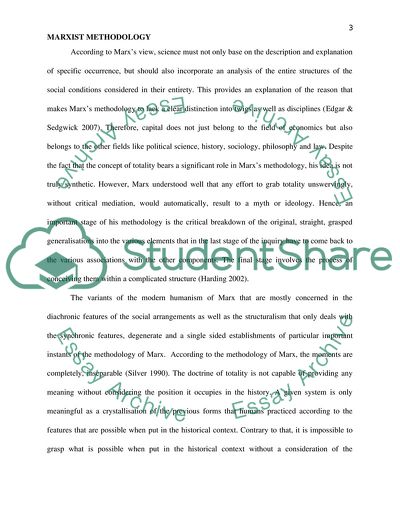Cite this document
(Marxist Methodology Essay Example | Topics and Well Written Essays - 1750 words, n.d.)
Marxist Methodology Essay Example | Topics and Well Written Essays - 1750 words. https://studentshare.org/sociology/1847898-outline-and-critically-evaluate-marxist-methodology
Marxist Methodology Essay Example | Topics and Well Written Essays - 1750 words. https://studentshare.org/sociology/1847898-outline-and-critically-evaluate-marxist-methodology
(Marxist Methodology Essay Example | Topics and Well Written Essays - 1750 Words)
Marxist Methodology Essay Example | Topics and Well Written Essays - 1750 Words. https://studentshare.org/sociology/1847898-outline-and-critically-evaluate-marxist-methodology.
Marxist Methodology Essay Example | Topics and Well Written Essays - 1750 Words. https://studentshare.org/sociology/1847898-outline-and-critically-evaluate-marxist-methodology.
“Marxist Methodology Essay Example | Topics and Well Written Essays - 1750 Words”. https://studentshare.org/sociology/1847898-outline-and-critically-evaluate-marxist-methodology.


